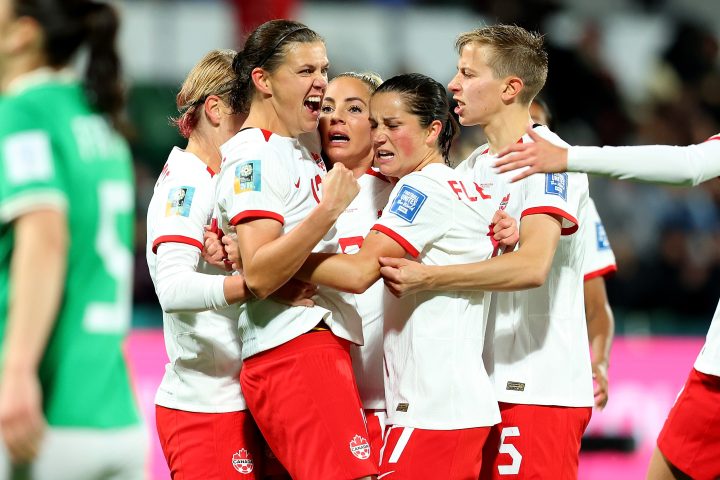
Title: Canadian Women’s Soccer Team Expresses Dissatisfaction with Interim Labour Deal: A Long Road Ahead
Introduction:
The Canadian women’s national soccer team has recently expressed their dissatisfaction with the interim labour deal reached between the Canadian Soccer Association (CSA) and the Professional Footballers’ Association (PFA). Despite the agreement being seen as a step forward, the team’s discontent highlights that there is still much work to be done to address the longstanding issues surrounding gender equality and fair treatment in women’s soccer. This article delves into the concerns raised by the team and sheds light on the challenges that lie ahead.
Background:
The Canadian women’s soccer team has been at the forefront of advocating for gender equality and equitable treatment in the sport. Their fight for better working conditions, pay equity, and support from the CSA gained significant attention during the 2015 FIFA Women’s World Cup held in Canada. The team’s success on the field, coupled with their activism off it, has made them a symbol of empowerment for women athletes across the country.
The Interim Labour Deal:
The interim labour deal, signed between the CSA and PFA, was intended to address some of the immediate concerns raised by the women’s national team. It included provisions such as increased compensation for players, improved travel arrangements, and better access to training facilities. While these changes were seen as positive steps, they fell short of fully addressing the team’s demands.
Dissatisfaction and Unresolved Issues:
Despite the interim agreement, members of the Canadian women’s soccer team have expressed their dissatisfaction, indicating that the matter is far from resolved. One of the main concerns raised by the players is the lack of progress on long-term structural changes that would ensure sustainable improvements in gender equality within Canadian soccer.
Pay Equity:
One of the central issues is pay equity. The women’s team argues that they should receive equal compensation to their male counterparts, considering their achievements and the revenue they generate for the CSA. The interim deal did include some salary increases, but it failed to bridge the significant pay gap that still exists.
Investment in Infrastructure and Development:
The team also emphasizes the need for increased investment in women’s soccer infrastructure and development programs. They argue that without adequate resources, it is challenging to compete at the highest level and continue to inspire future generations of female players.
Representation and Decision-Making:
Another concern raised by the team is the lack of female representation in decision-making positions within the CSA. They argue that having more women involved in key roles would lead to a better understanding of the unique challenges faced by female athletes and result in more equitable policies.
The Way Forward:
The dissatisfaction expressed by the Canadian women’s soccer team serves as a reminder that achieving gender equality in sports requires ongoing efforts and a commitment from all stakeholders. The interim labour deal should be seen as a starting point rather than a final solution.
Moving forward, it is crucial for the CSA and PFA to engage in open dialogue with the players, addressing their concerns and working towards long-term solutions. This includes revisiting compensation structures, investing in women’s soccer infrastructure, and ensuring equal representation at decision-making levels.
Conclusion:
The Canadian women’s soccer team’s dissatisfaction with the interim labour deal highlights the ongoing struggle for gender equality in sports. While progress has been made, there are still significant challenges to overcome. By addressing the concerns raised by the players and committing to meaningful change, the CSA and PFA can pave the way for a more equitable future for women’s soccer in Canada.

